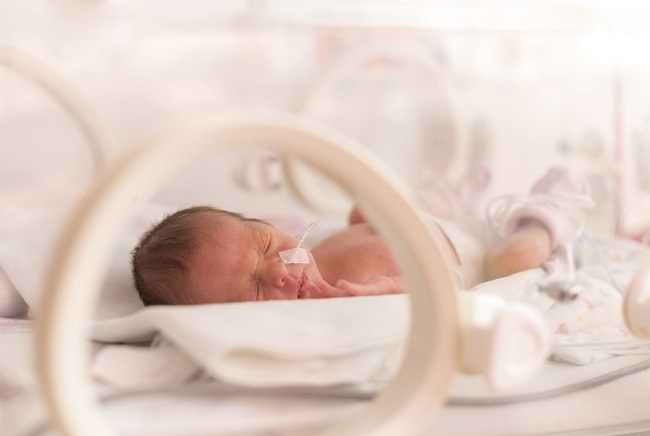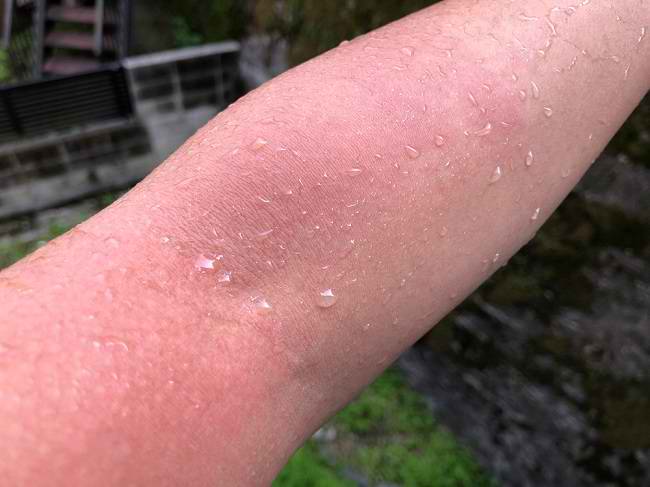Amniocentesis is a procedure performed during pregnancy to examine a sample of amniotic fluid. This procedure is useful to determine the presence or absence of abnormalities in the fetus. If necessary, amniocentesis will be recommended to pregnant women when the gestational age reaches 15-20 weeks.
In the amniocentesis procedure, the doctor uses a special needle to take a sample of amniotic fluid (amniotic fluid), by inserting it into the mother's abdomen to the uterus. The doctor will examine the fluid that contains cells to give clues about the condition of the fetus.
The cells are examined based on the size and number of fetal chromosomes, which indicate if there is a risk or disorder that harms the fetus, one of which is to detect Down syndrome.

Indications for Amniocentesis
Doctors recommend an amniocentesis procedure when you are 15-20 weeks pregnant. This is done with the aim of:
- Knowing fetal chromosomal abnormalities before birth. Amniocentesis examination is performed if after ultrasound examination of pregnancy is suspected of abnormalities in the fetus, such as Patau's syndrome.
- Know the development of the fetal lungs.
- Confirm the occurrence of chorioamnionitis, which is a bacterial infection of the amniotic sac (amnion) and the placenta-forming layer (chorion).
- Evaluating fetal abnormalities due to alloimmunization, namely abnormalities due to the response of the mother's immune system or immune system which is also transferred to the fetus, and causes problems for the fetus. Consequence disorder alloimmunization this is a disorder due to rhesus incompatibility (rhesus incompatibility) or hydrops fetalis. If rhesus incompatibility is not detected early, it can endanger the condition of the fetus.
- Treatment of polyhydramnios, namely by giving drugs directly into the membranes, to reduce pressure in the uterus. Amniocentesis can also be used to deliver drugs directly to the fetus.
Abnormalities in the fetus are more prone to occur in pregnant women with the following conditions:
- Aged over 35 years.
- Have a family history of or previously born children with metabolic disorders or gene disorders, such as Down syndrome, Tay-Sachs disease, or cystic fibrosis.
Amniocentesis Warning
Amniocentesis is a safe procedure to perform. Even so, there are still some conditions that cause pregnant women to be careful before carrying out amniocentesis. These circumstances include:
- Lack of amniotic fluid (oligohydramnios).
- Abnormal position of the placenta.
- Have allergies to anesthetics, latex, or adhesives.
- Are taking other medicines, such as blood thinners.
- Have a history of blood clotting disorders.
- The difference between the rhesus blood group and the fetus in the womb.
- Have hepatitis or HIV.
Before Amniocentesis
There is no special preparation before undergoing amniocentesis. Pregnant women also do not need to fast before taking action. In some cases, pregnant women are advised to hold back urination, because this procedure is easier to do when urine fills the urinary tract. Ask your husband or family to accompany and accompany you during the procedure.
Amniocentesis Procedure
The doctor will ask you to lie down comfortably on the examination room bed. The doctor will help to position yourself into the lithotomy position, which is a lying position on your back, knees and hips bent, and both legs will be supported.
When you are lying comfortably, the doctor will use an ultrasound to check the condition of the fetus, the fetal heart rate, the location of the placenta, and the location of the amniotic fluid.
The doctor will use an anesthetic that is injected around the abdomen to reduce pain. However, anesthesia is not always used in amniocentesis because its effect is felt to be less important.
Ultrasound is also used as a guide to insert the needle into the abdominal wall until the tip of the needle is in the center of the amniotic sac. The doctor will take approximately 30 ml (about 2 tablespoons) of fluid. This procedure lasts a short time, which is about 30 seconds to a few minutes.
If enough fluid is taken, the doctor will carefully pull the needle out of the abdomen. After that, the doctor will apply an antiseptic solution and cover the puncture area in the abdomen with a bandage.
After Amniocentesis
After amniocentesis, the doctor will check the fetal heart rate with a special instrument, making sure that the fetus is not under stress. If you are rhesus negative, and the fetus is suspected to be rhesus positive, your doctor will give you a Rho injection after the procedure. Rho injection aims to prevent reaction alloimmunization to the fetus.
The doctor will allow you to go home and advise you to rest at home, and avoid repetitive activities and sexual intercourse for 1-2 days.
The sample of amniotic fluid will be further examined in the laboratory and the results can be obtained within a few days to a month. Discuss with the doctor the results of the amniocentesis that has been carried out.
Amniocentesis Complications
Consult your doctor if you experience complications after undergoing amniocentesis. Amniocentesis can cause a number of complications, including:
- Transmission of infection. Pregnant women who have infections, such as hepatitis or HIV, are at risk of infecting the fetus through amniocentesis.
- Amniotic fluid leakage. Although rare, leakage of amniotic fluid can occur. If this happens, the condition of the mother and fetus will continue to be monitored by a doctor, especially if there is an infection. In this case, the risk of preterm birth complications will increase, which is generally caused by a small amount of amniotic fluid remaining.
- Research actually shows the chance of amniocentesis to cause a miscarriage risk is very small. The occurrence of miscarriage due to amniocentesis is only 0.2-0.3 percent of all pregnancies.
- Injury to the fetus, such as lung disorders, hip dislocation, or clubfoot (clubfoot).









